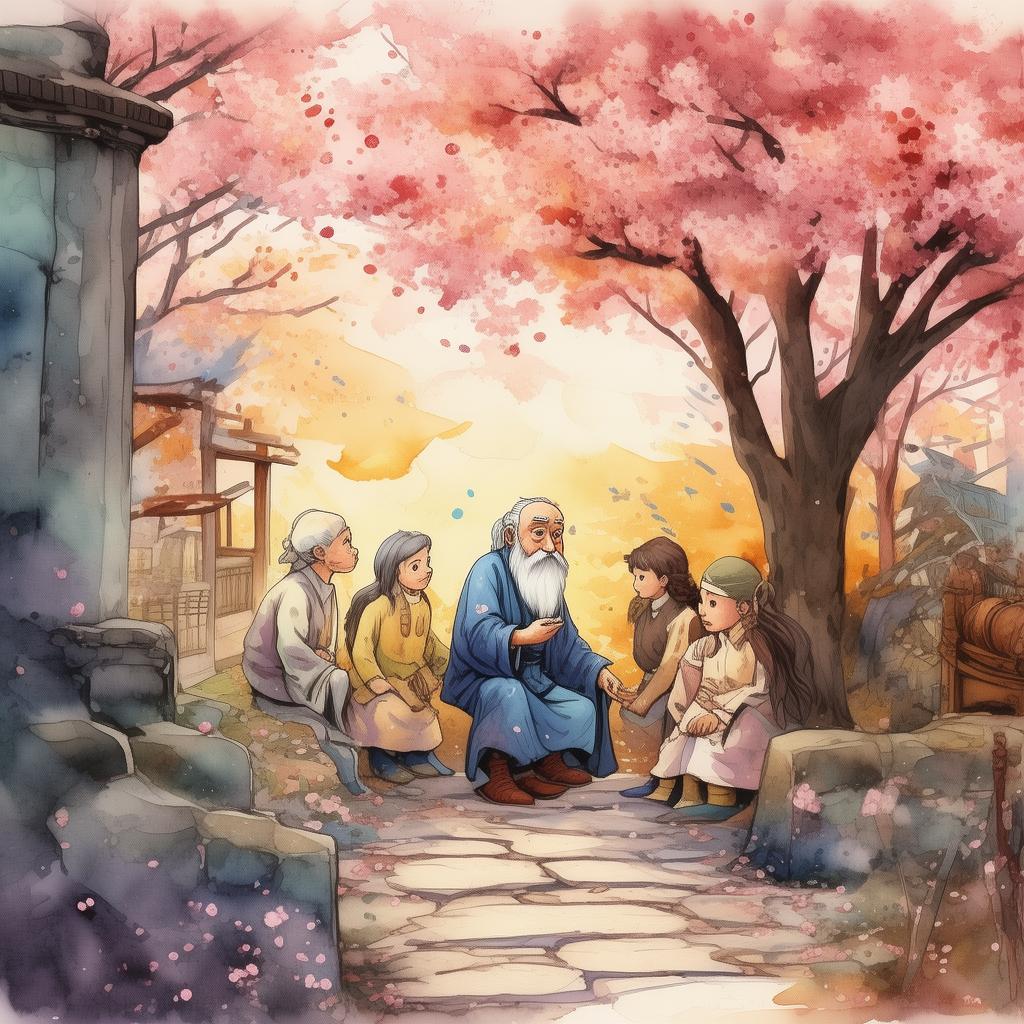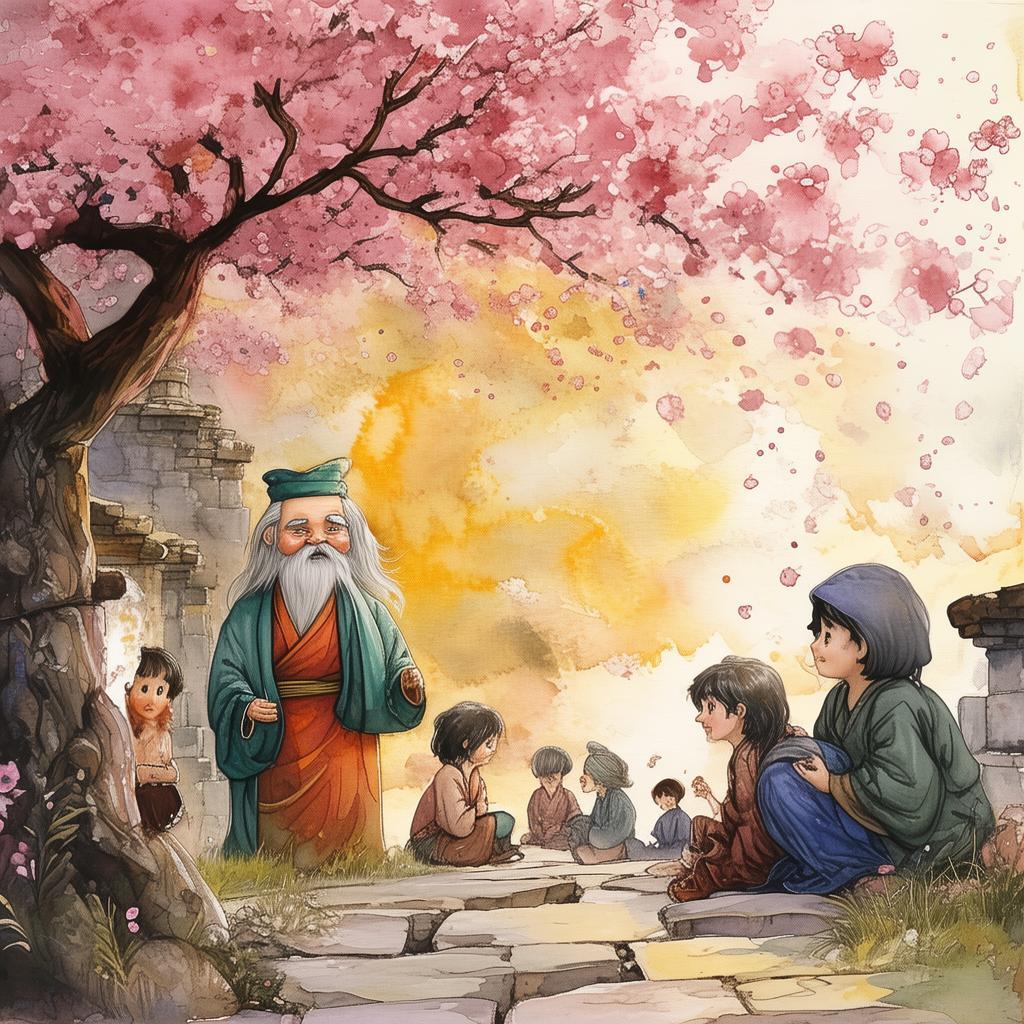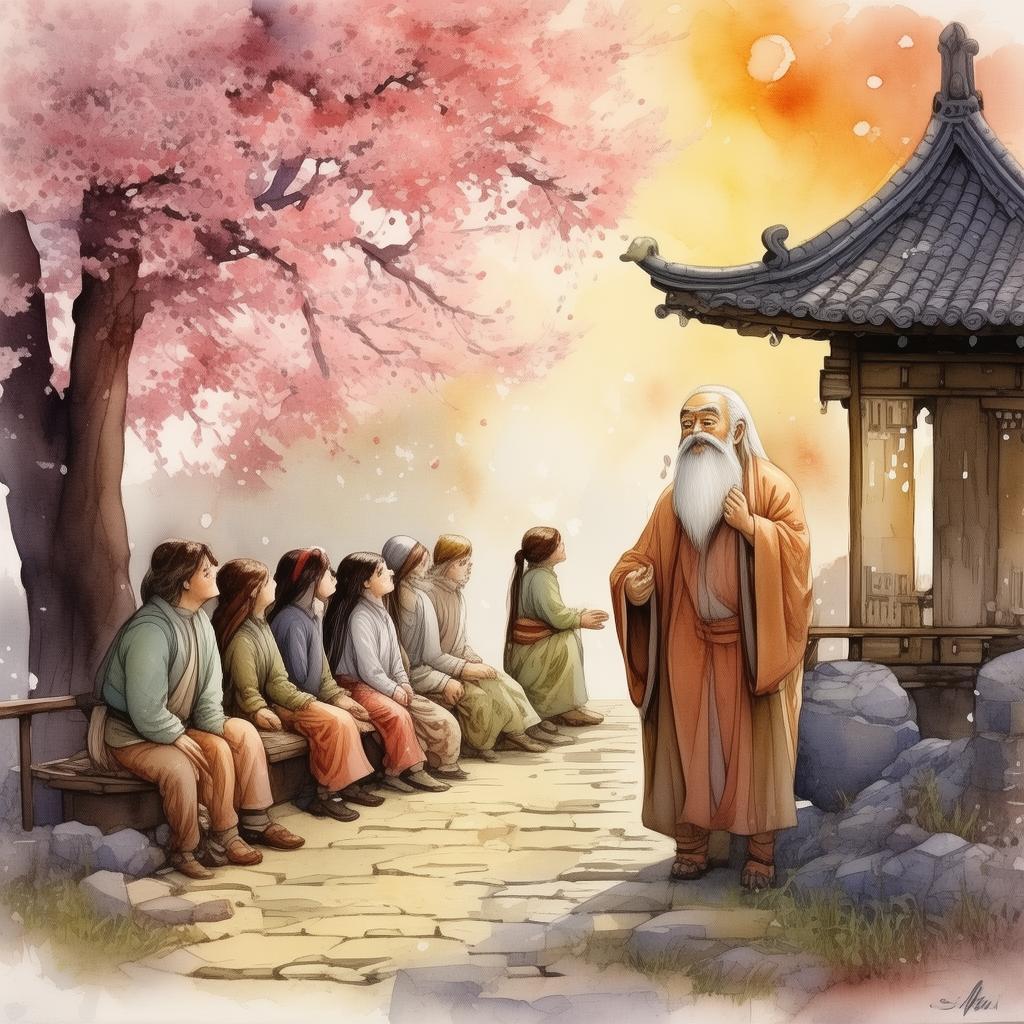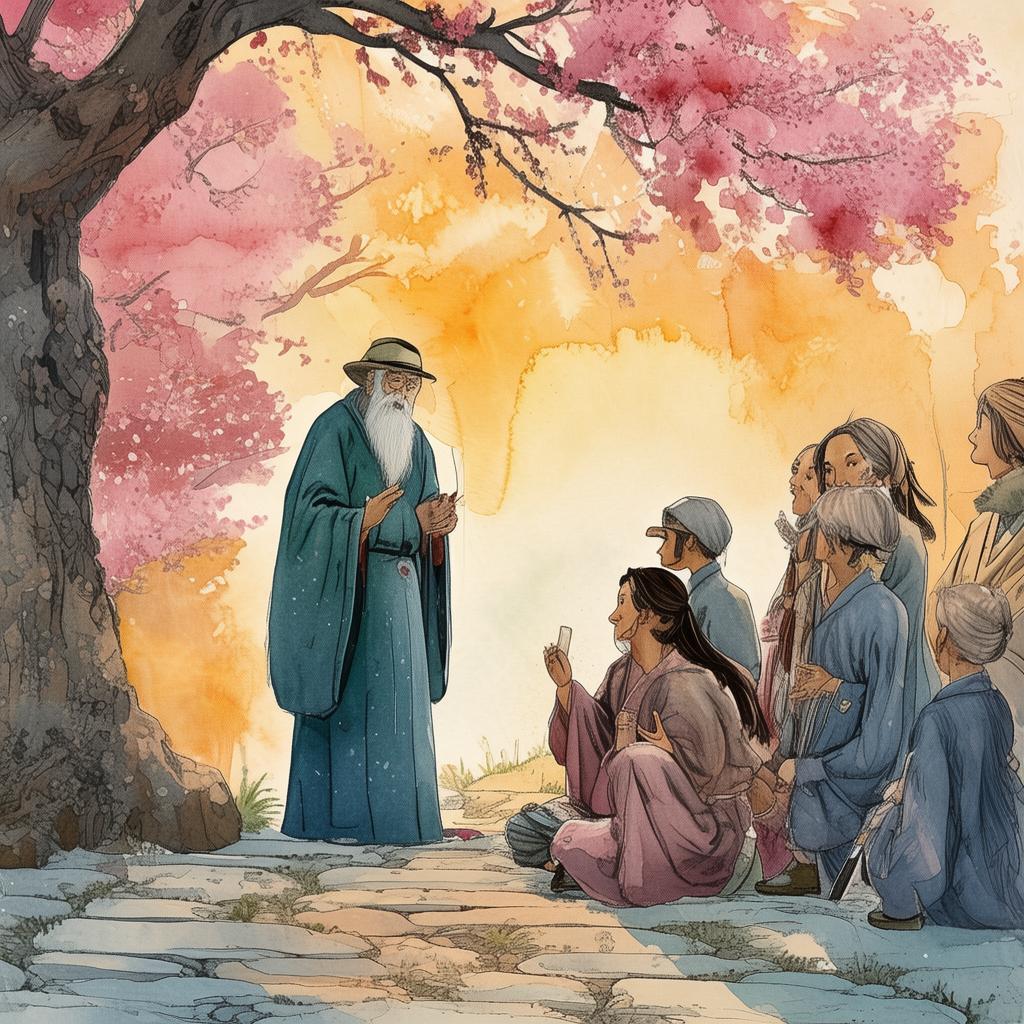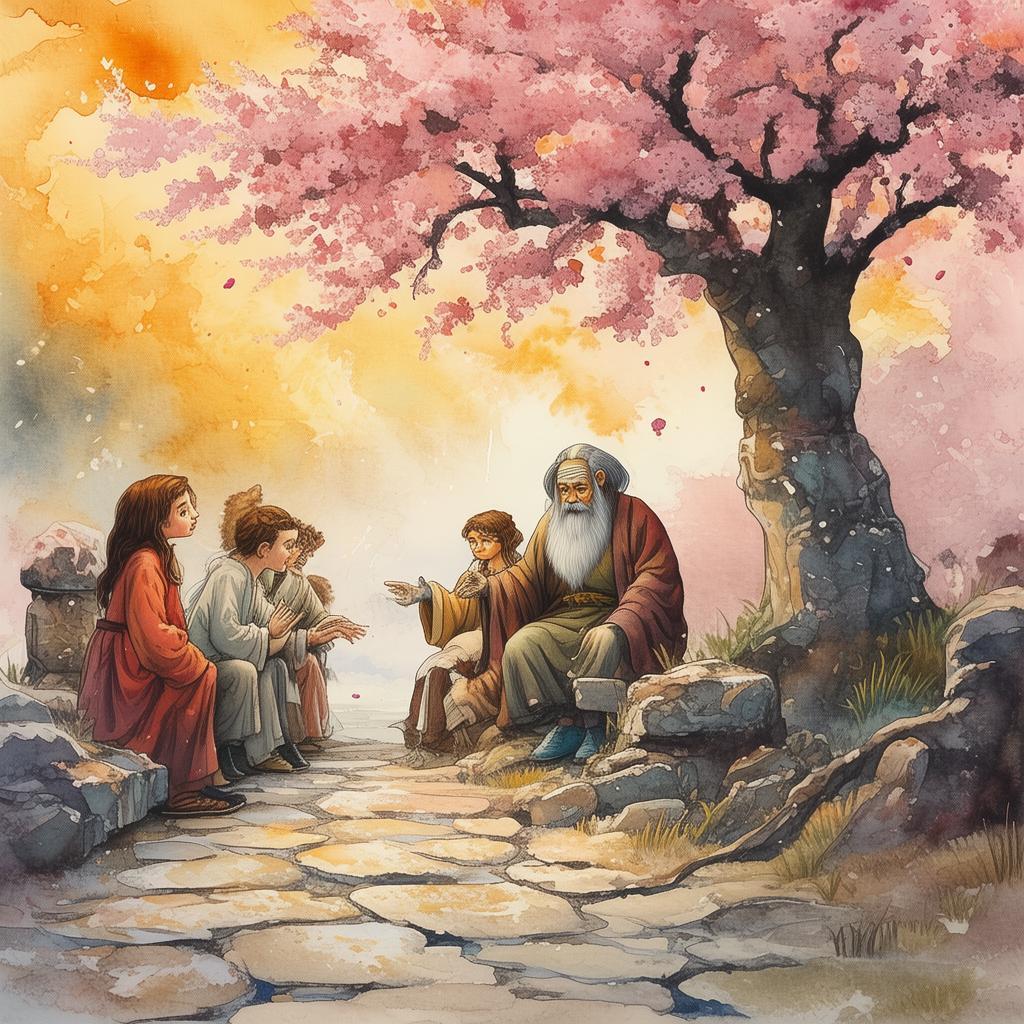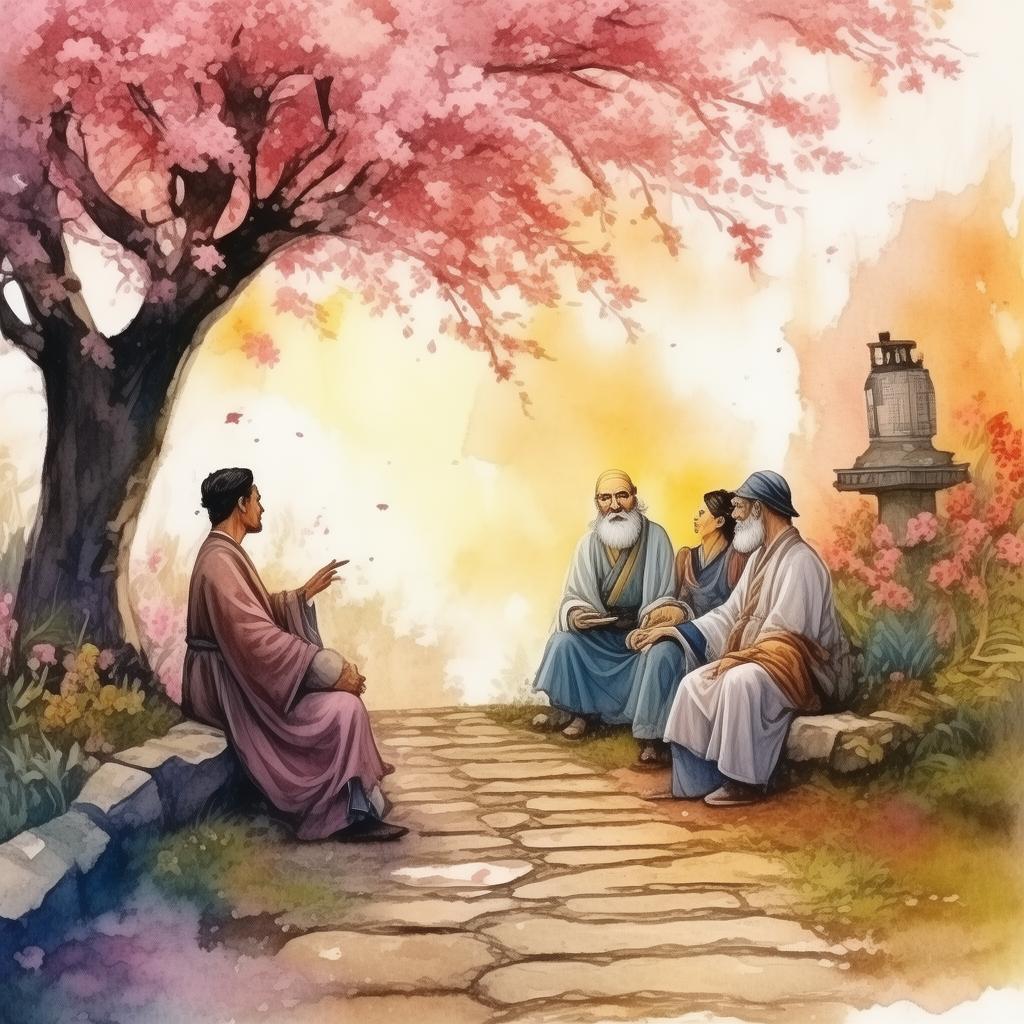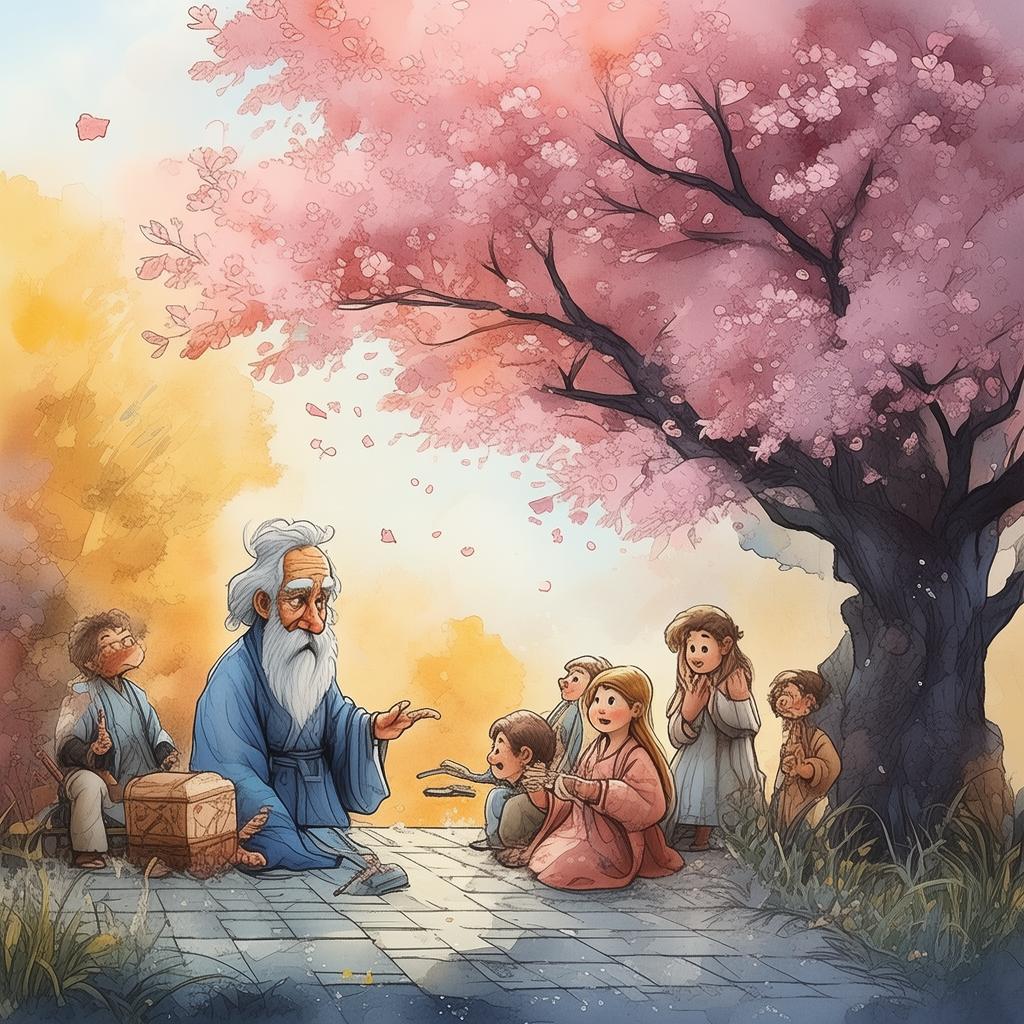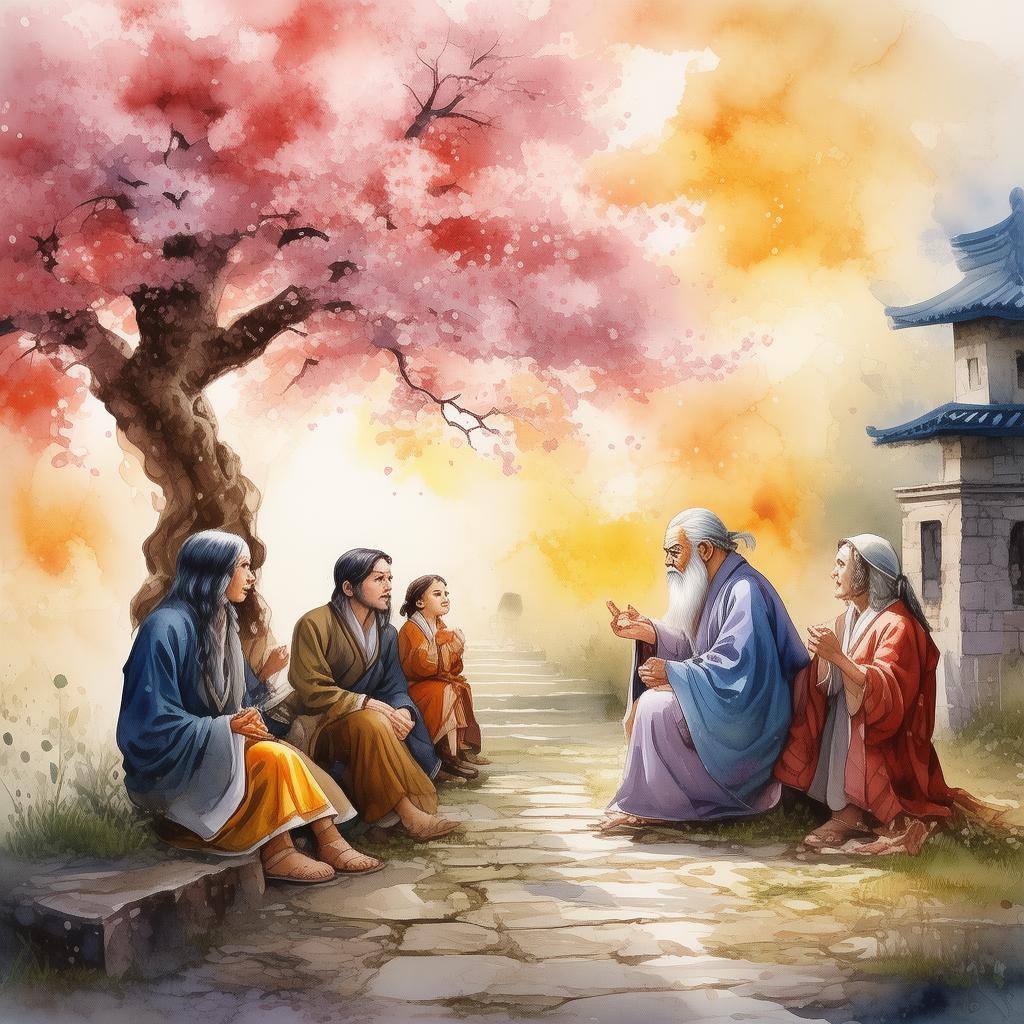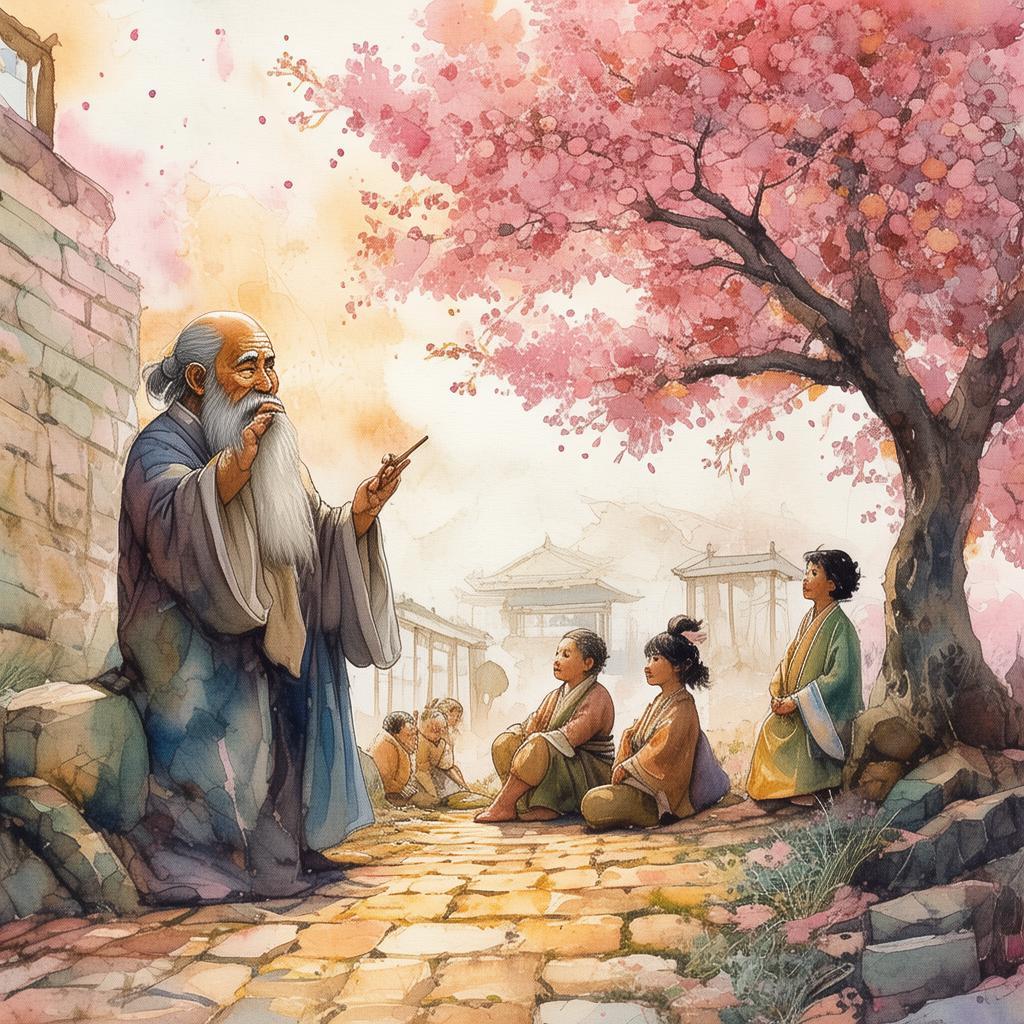The Heir's Promise: A Dynasty's Peace
In the ancient kingdom of Jingcheng, where the sun kissed the towering spires of the imperial palace and the wind whispered secrets of the past, there lived a young heir named Ming. He was the son of the aging Emperor, a ruler who had unified the land with an iron fist, but whose heart was as soft as the dawn's first light. Ming was to be the next in line, the bridge between the old and the new, a symbol of the dynasty's enduring peace.
The kingdom was known for its prosperity and harmony, but beneath the surface, there simmered a cauldron of old grievances and forgotten feuds. Ming had been raised to know these secrets, to understand the delicate balance that kept the peace. He was told that his destiny was to maintain this peace, to be the peacemaker of Jingcheng.
One day, a mysterious letter arrived. It was addressed to Ming, but it bore no signature. The letter spoke of a secret alliance that threatened the very foundations of the dynasty. It spoke of betrayal, of a plot to divide the kingdom, and of a prophecy that Ming was the key to stopping it.
The letter was vague, but it was enough to unsettle Ming. He knew that the only way to protect his kingdom was to uncover the truth. He called together his closest advisors, a group of wise and loyal ministers who had served the empire for generations.
"Your Highness," one of the advisors, Minister Li, began, "this letter is a dangerous game. It could be a ploy to destabilize the empire."
Ming nodded, his eyes reflecting the gravity of the situation. "But it could also be a call to action. We must find out who is behind this and why."
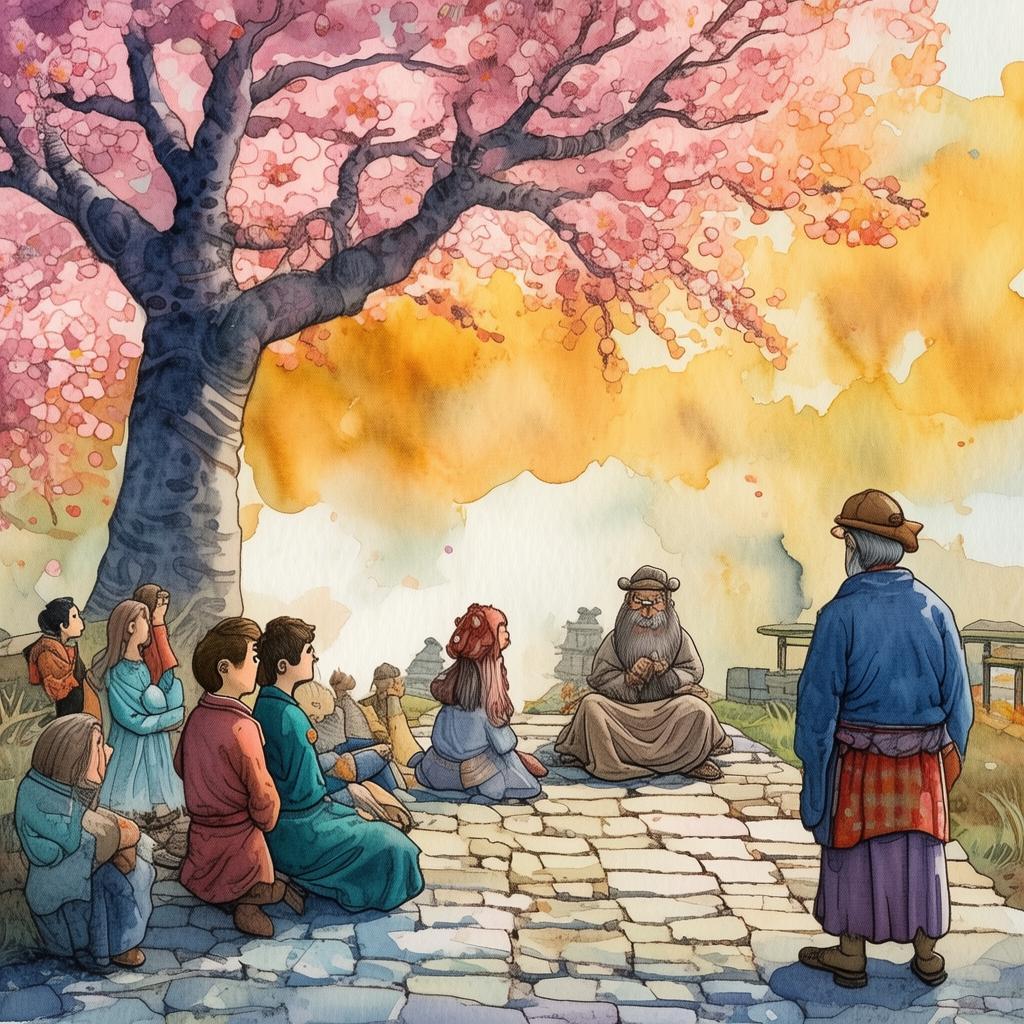
The advisors agreed, and they set out to investigate. They discovered that the letter had originated from a remote village, far from the reach of the imperial court. They traveled through rugged mountains and dense forests, their hearts heavy with the weight of their mission.
In the village, they met an old woman who claimed to have seen the prophecy fulfilled in Ming. She spoke of a dream where the heir was destined to bring peace to the kingdom. The advisors were struck by the woman's words, but they remained cautious.
As they returned to the capital, Ming was faced with a difficult decision. He knew that if he chose to ignore the letter, the kingdom would be safe for now. But if he pursued the truth, he risked everything—his life, his family, the peace he had vowed to uphold.
"The heir's promise," Minister Li reminded him, "is not just to the kingdom, but to the people. If there is a threat, we must confront it."
Ming agreed, and together they set out to unravel the mystery. They discovered that the prophecy was a ruse, a means to manipulate Ming into leading a campaign against his own advisors. But as they delved deeper, they uncovered a hidden truth: the real threat was not from the outside, but from within the royal family itself.
The heir's closest confidant, a man who had been by his side since childhood, was in league with the enemy. He had been plotting to seize the throne and plunge the kingdom into chaos. Ming was torn between his loyalty to his friend and his duty to the kingdom.
In a heart-wrenching moment, Ming confronted his betrayer. "Why?" he asked, his voice breaking. "Why would you do this?"
The confidant looked into Ming's eyes and replied, "To save the kingdom from its own corruption."
Ming knew then that he could not trust anyone, not even those closest to him. He had to make a choice. He chose peace.
With the help of his advisors and the support of the kingdom's people, Ming exposed the traitor and brought him to justice. The kingdom was saved, and the peace that had been threatened was restored.
Ming's decision to confront the truth, despite the risks, earned him the respect and love of his people. He became known as the Heir of Peace, a title that would be whispered through the ages.
The story of the Heir's Promise spread far and wide, a tale of bravery and sacrifice. It taught the people of Jingcheng that true peace is not a gift to be taken for granted, but a promise to be kept, a duty to be fulfilled.
In the end, Ming's journey was not just about saving his kingdom, but about saving himself. He realized that the true power of leadership lay not in the might of the sword, but in the strength of the heart. And so, he stood as the beacon of peace, the heir who had earned his title through the trials of his destiny.
✨ Original Statement ✨
All articles published on this website (including but not limited to text, images, videos, and other content) are original or authorized for reposting and are protected by relevant laws. Without the explicit written permission of this website, no individual or organization may copy, modify, repost, or use the content for commercial purposes.
If you need to quote or cooperate, please contact this site for authorization. We reserve the right to pursue legal responsibility for any unauthorized use.
Hereby declared.
